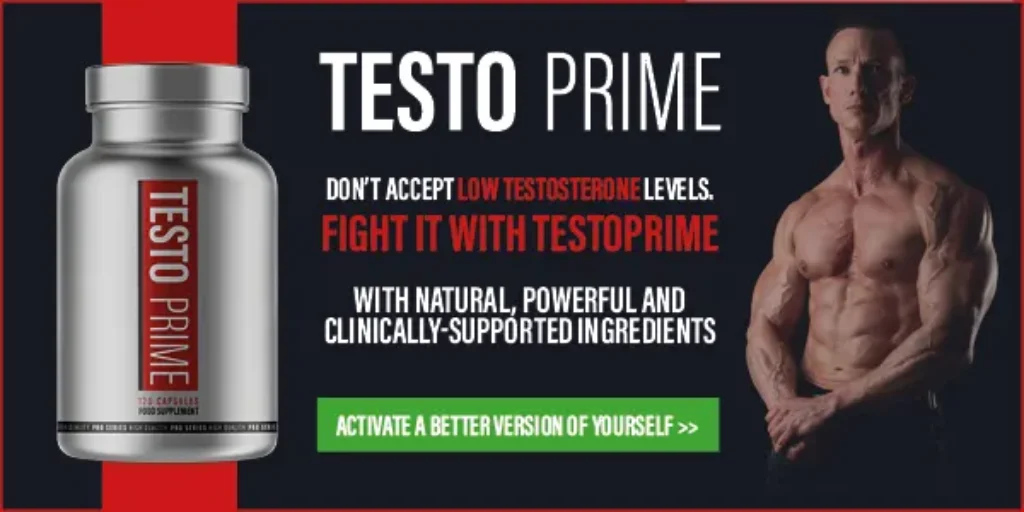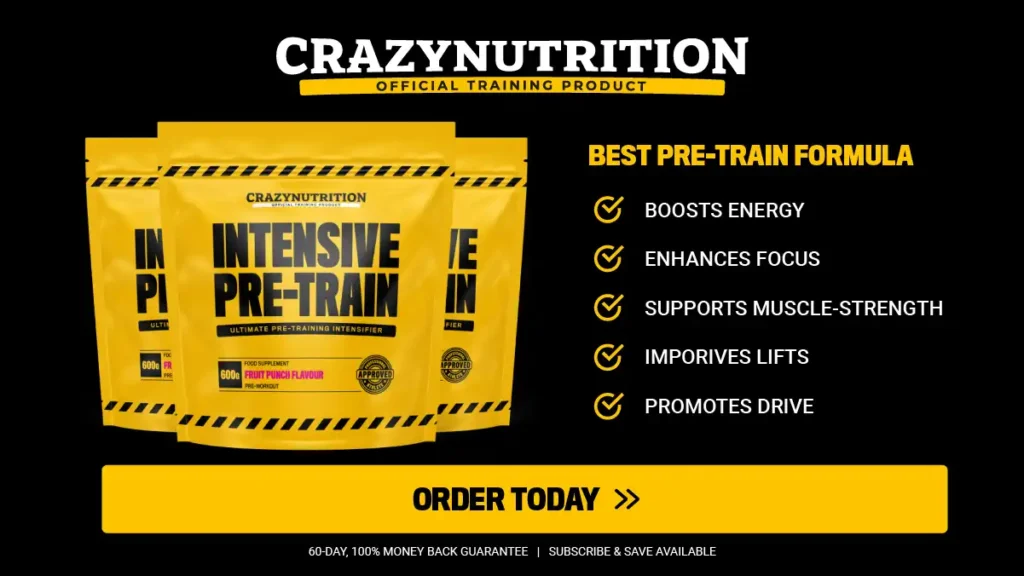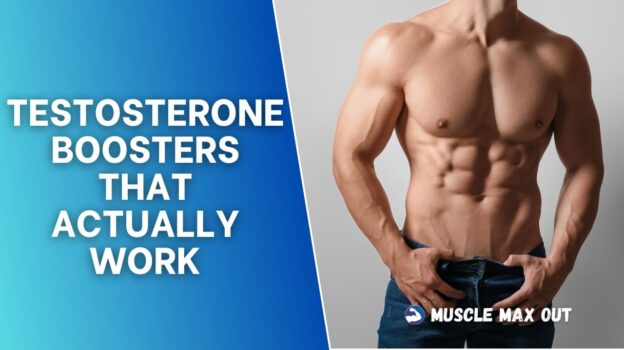For fitness enthusiasts and bodybuilders seeking to optimize their performance, testosterone plays a crucial role in muscle building, strength gains, and overall athletic performance.
As men age or face various lifestyle stressors, testosterone levels naturally decline, leading many to explore testosterone boosters as a potential solution.
However, the supplement market is flooded with products making bold claims, leaving consumers wondering which testosterone boosters actually deliver results.
This comprehensive guide examines evidence-based testosterone boosters that have demonstrated real effectiveness in clinical studies and real-world applications.
Whether someone is looking to break through training plateaus, enhance recovery, or simply maintain optimal hormone levels as they age, understanding which supplements actually work can make the difference between wasted money and meaningful results.

Understanding Testosterone and Its Role in Fitness
Testosterone serves as the primary male sex hormone, playing a vital role in muscle protein synthesis, bone density, fat distribution, and energy levels. For those dedicated to strength training and muscle building, adequate testosterone levels are essential for maximizing training adaptations and achieving physique goals.
Research shows that testosterone levels in men have been declining over the past several decades, with various factors contributing to this trend including sedentary lifestyles, poor sleep quality, chronic stress, and dietary factors. This decline becomes more pronounced after age 30, when testosterone levels typically drop by 1-2% annually.
The symptoms of low testosterone can significantly impact training performance and results:
- Decreased muscle mass and strength
- Reduced motivation and energy for workouts
- Longer recovery times between training sessions
- Increased body fat, particularly around the midsection
- Poor sleep quality affecting muscle recovery
- Decreased libido and overall vitality
Science-Backed Testosterone Boosters
D-Aspartic Acid
D-Aspartic Acid (DAA) represents one of the most researched natural testosterone boosters available. This amino acid plays a crucial role in hormone production by stimulating the release of luteinizing hormone, which signals the testes to produce more testosterone.
Clinical studies have shown mixed but promising results. A landmark study published in Reproductive Biology and Endocrinology found that men taking 3.12 grams of DAA daily experienced a 42% increase in testosterone levels after 12 days. However, subsequent studies have shown that the effects may diminish with longer-term use, suggesting cycling protocols may be most effective.
For fitness enthusiasts, DAA appears most beneficial when used in 2-3 week cycles followed by equal periods off. The typical effective dosage ranges from 3-6 grams daily, taken on an empty stomach for optimal absorption.
Vitamin D3
Often overlooked as a testosterone booster, Vitamin D3 functions more like a hormone than a traditional vitamin in the body. Deficiency in this crucial nutrient is widespread, particularly among individuals who spend significant time training indoors or living in northern climates.
Multiple studies have demonstrated the connection between Vitamin D status and testosterone levels. Research published in the Journal of Clinical Endocrinology and Metabolism showed that men with adequate Vitamin D levels had significantly higher testosterone compared to those who were deficient.
For athletes and bodybuilders, maintaining optimal Vitamin D levels offers additional benefits beyond testosterone support, including improved bone health, immune function, and muscle protein synthesis. The recommended dosage for testosterone optimization typically ranges from 2000-5000 IU daily, depending on individual blood levels and sun exposure.
Zinc
Zinc deficiency directly correlates with reduced testosterone production, making this essential mineral a cornerstone of any natural testosterone optimization protocol. Athletes face increased zinc requirements due to losses through sweat during intense training sessions.
Studies have consistently shown that zinc supplementation can restore testosterone levels in deficient individuals. Research published in Nutrition demonstrated that wrestlers who supplemented with zinc during intense training maintained higher testosterone levels compared to those receiving a placebo.
The most effective forms for testosterone support include zinc picolinate or zinc bisglycinate, which offer superior absorption compared to cheaper zinc oxide. Optimal dosing ranges from 15-30 mg daily, preferably taken on an empty stomach or with a small meal to minimize gastric upset.
Magnesium
Magnesium plays a crucial role in over 300 enzymatic reactions in the body, including those involved in testosterone production. Like zinc, magnesium deficiency is common among active individuals due to increased requirements and losses through perspiration.
A study published in Biological Trace Element Research found that athletes supplementing with magnesium experienced significant increases in both free and total testosterone levels compared to sedentary controls. The mineral appears to work by reducing inflammation and supporting optimal sleep quality, both crucial factors for hormone production.
Magnesium glycinate or magnesium bisglycinate represent the most bioavailable forms for supplementation. The typical effective dose ranges from 400-600 mg daily, preferably taken in the evening to support sleep quality and overnight recovery.
Ashwagandha
This adaptogenic herb has gained significant attention in the fitness community for its ability to support testosterone levels while simultaneously reducing cortisol, the primary stress hormone that can interfere with muscle building and recovery.
Clinical research published in the American Journal of Men’s Health demonstrated that men taking ashwagandha extract experienced significant increases in testosterone levels along with improvements in muscle mass and strength compared to placebo groups. The study participants also reported better sleep quality and reduced stress levels.
The most researched form is KSM-66 ashwagandha extract, with effective dosages ranging from 300-600 mg daily. For optimal results, consistent daily use for 8-12 weeks appears necessary to achieve maximum benefits.
Lifestyle Factors That Support Natural Testosterone Production
Sleep Optimization
Quality sleep represents the foundation of healthy testosterone production. Research shows that even one week of sleep restriction to 5 hours per night can decrease testosterone levels by 10-15%. For serious athletes and bodybuilders, prioritizing 7-9 hours of quality sleep becomes non-negotiable for optimizing hormone levels.
Sleep quality matters as much as quantity. Deep sleep phases are when the body produces the majority of testosterone and growth hormone. Creating an optimal sleep environment involves maintaining cool temperatures, eliminating light sources, and avoiding stimulants several hours before bedtime.
Resistance Training
Heavy resistance training, particularly compound movements like squats, deadlifts, and overhead presses, naturally stimulate testosterone production. However, the relationship between training and testosterone is complex, as excessive training volume can lead to overreaching and decreased hormone levels.
Research suggests that training sessions lasting 45-60 minutes with moderate to heavy loads provide the optimal stimulus for testosterone production without triggering excessive cortisol release. Rest periods between sets should be sufficient to maintain training intensity throughout the workout.
Stress Management
Chronic stress elevates cortisol levels, which directly antagonizes testosterone production. For individuals pursuing serious physique goals, implementing effective stress management strategies becomes crucial for maintaining optimal hormone balance.
Effective stress management techniques include:
- Regular meditation or mindfulness practices
- Adequate recovery time between intense training sessions
- Engaging in enjoyable activities outside of training
- Maintaining social connections and relationships
- Limiting exposure to unnecessary stressors
Dietary Considerations
Nutrition plays a fundamental role in supporting healthy testosterone levels. Extremely low-fat diets can suppress hormone production, as testosterone synthesis requires adequate cholesterol and saturated fat intake.
Key dietary factors for testosterone optimization include:
- Consuming adequate total calories to support training demands
- Including sufficient healthy fats from sources like olive oil, nuts, and fatty fish
- Maintaining adequate protein intake for muscle protein synthesis
- Limiting processed foods and excessive sugar intake
- Including zinc-rich foods like oysters, beef, and pumpkin seeds
Supplements to Avoid
The testosterone booster market is filled with products that lack scientific support or may even be counterproductive. Understanding which ingredients to avoid can save money and prevent potential side effects.
Tribulus Terrestris
Despite widespread marketing claims, multiple clinical studies have failed to demonstrate that Tribulus Terrestris effectively increases testosterone levels in healthy men. While this herb may have other health benefits, it should not be relied upon for testosterone optimization.
Testosterone Precursors
Supplements containing DHEA or androstenedione were once popular among bodybuilders but have largely been shown to be ineffective for increasing testosterone in healthy individuals. These compounds may also carry legal and health risks that outweigh any potential benefits.
Proprietary Blends
Many testosterone boosters hide their ingredient dosages behind proprietary blends, making it impossible to determine if the formula contains effective amounts of each ingredient. Transparent labeling allows consumers to make informed decisions based on research-backed dosages.
Timing and Cycling Protocols
| Supplement | Optimal Timing | Cycling Protocol | Duration |
|---|---|---|---|
| D-Aspartic Acid | Morning, empty stomach | 3 weeks on, 2 weeks off | Repeat cycles |
| Vitamin D3 | With fat-containing meal | Continuous use | Long-term |
| Zinc | Empty stomach or light meal | Continuous use | Long-term |
| Magnesium | Evening before bed | Continuous use | Long-term |
| Ashwagandha | With meals, divided doses | 8-12 weeks on, 2-4 weeks off | Repeat cycles |
Realistic Expectations and Timeline
Setting appropriate expectations is crucial when beginning any testosterone optimization protocol. Natural testosterone boosters work gradually and produce modest but meaningful improvements rather than dramatic overnight changes.
Most individuals can expect to notice initial improvements in energy levels and sleep quality within 2-4 weeks of consistent supplementation. Changes in body composition and training performance typically become apparent after 6-8 weeks of consistent use combined with appropriate training and nutrition protocols.
The magnitude of improvement varies significantly between individuals and depends on starting testosterone levels, overall health status, training experience, and adherence to lifestyle factors. Those with existing deficiencies in key nutrients like Vitamin D or zinc may experience more dramatic improvements compared to individuals with already optimal levels.
Safety Considerations and Medical Consultation
While natural testosterone boosters are generally considered safe for healthy adults, consulting with a healthcare provider before beginning any supplementation protocol is advisable, particularly for individuals with pre-existing medical conditions or those taking medications.
Regular blood work can help monitor testosterone levels and ensure that supplementation protocols are producing desired results without causing any adverse effects. Key markers to track include total testosterone, free testosterone, and sex hormone-binding globulin (SHBG).
Signs that warrant discontinuation and medical consultation include:
- Unexplained mood changes or irritability
- Sleep disturbances or insomnia
- Digestive issues that persist beyond initial adjustment periods
- Any unusual physical symptoms

Conclusion
The quest for effective testosterone optimization requires a comprehensive approach that combines evidence-based supplementation with attention to lifestyle factors that naturally support healthy hormone levels. While the supplement market contains many products with questionable efficacy, several natural testosterone boosters have demonstrated real benefits in clinical research.
D-Aspartic Acid, Vitamin D3, zinc, magnesium, and ashwagandha represent the most promising options for individuals seeking to naturally optimize their testosterone levels. However, these supplements work best when combined with proper sleep habits, stress management, appropriate training protocols, and sound nutrition practices.
Success in testosterone optimization, like success in fitness pursuits, requires patience, consistency, and realistic expectations. Rather than searching for quick fixes or dramatic results, focusing on gradual improvements through sustainable lifestyle changes and evidence-based supplementation offers the best path to long-term success.
For serious athletes and bodybuilders, testosterone optimization represents just one piece of the complex puzzle of maximizing performance and physique development. When approached thoughtfully and combined with dedication to training and nutrition fundamentals, natural testosterone boosters can provide meaningful support for achieving fitness goals while maintaining long-term health and vitality.
Discover more from Muscle Max Out
Subscribe to get the latest posts sent to your email.






